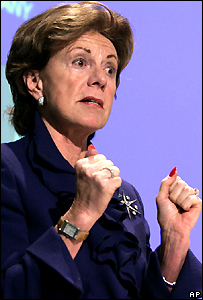On the podcast this week, Sonia Arrison, writer, futurist, and senior fellow at the Pacific Research Institute, discusses her new book entitled 100+: How the Coming of Age of Longevity Will Change Everything from Careers and Relationships to Family and Faith. The process of aging, according to Arrison, is not set in stone, and the way humans experience age can be changed as technology evolves. She discusses the different types of technology, including tissue engineering and gene therapy, which are poised to change numerous aspects of human life by improving health and increasing lifespan to 150 years and beyond. She also talks about how increased lifespans will affect institutions in society and addresses concerns, such as overpopulation and depletion of resources, raised by critics of this technology.
Related Links
- 100+, Sonia Arrison’s webpage
- “Living And Working To 100”, fastcompany.com
- “Living to 100 and Beyond”, Wall Street Journal
- “The World Will Be More Crowded — With Old People”, foreignpolicy.com
To keep the conversation around this episode in one place, we’d like to ask you to comment at the webpage for this episode on Surprisingly Free. Also, why not subscribe to the podcast on iTunes?




 The Technology Liberation Front is the tech policy blog dedicated to keeping politicians' hands off the 'net and everything else related to technology.
The Technology Liberation Front is the tech policy blog dedicated to keeping politicians' hands off the 'net and everything else related to technology.